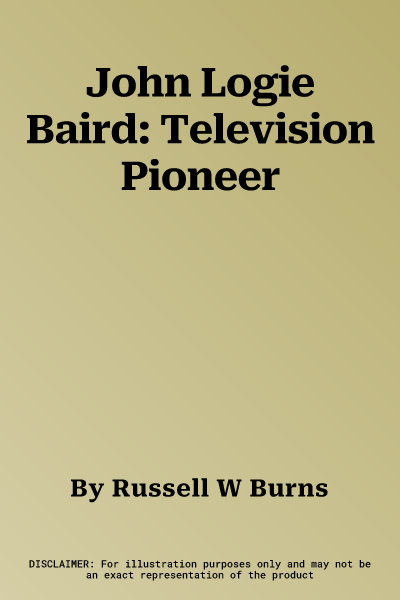Professor Russell Burns attempts to offer a balanced biography of one of
the twentieth century's outstanding inventors, published to coincide
with the 75th anniversary of Baird's first public demonstration of a
rudimentary television system. The author's meticulous treatment is
based on primary source documents although many personal recollections
are included to add humour, colour and context. A great deal of material
regarding Baird's business partnerships in the early 1920s has only
recently become available to researchers and is covered here for the
first time.
Baird is credited in Britain and elsewhere as the inventor of
television, realising a quest which for fifty years had engaged the
attention of inventors, scientists and engineers. When he started work
he had no regular income, no research experience and no laboratory or
workshop, his work had no funding or commercial sponsorship, and
initially he had no expert help. Having demonstrated a rudimentary
system in early 1926 he then developed many other aspects of television
and aspired to launch a low-definition television broadcasting service.
To raise capital he entered various business partnerships. Holding many
patents, he could have retired wealthy but he chose instead to develop
his ideas further, focusing on cinema, colour and stereoscopic
television, so that when he died he left only £7000.
The book illuminates Baird's life and work in many interesting ways. For
example, how did Baird's technical strategy and development compare with
the work undertaken in industrial laboratories? How did his development
policy compare with the development of wireless by Marconi? Was his
'invention' in 1925 really outstanding?

